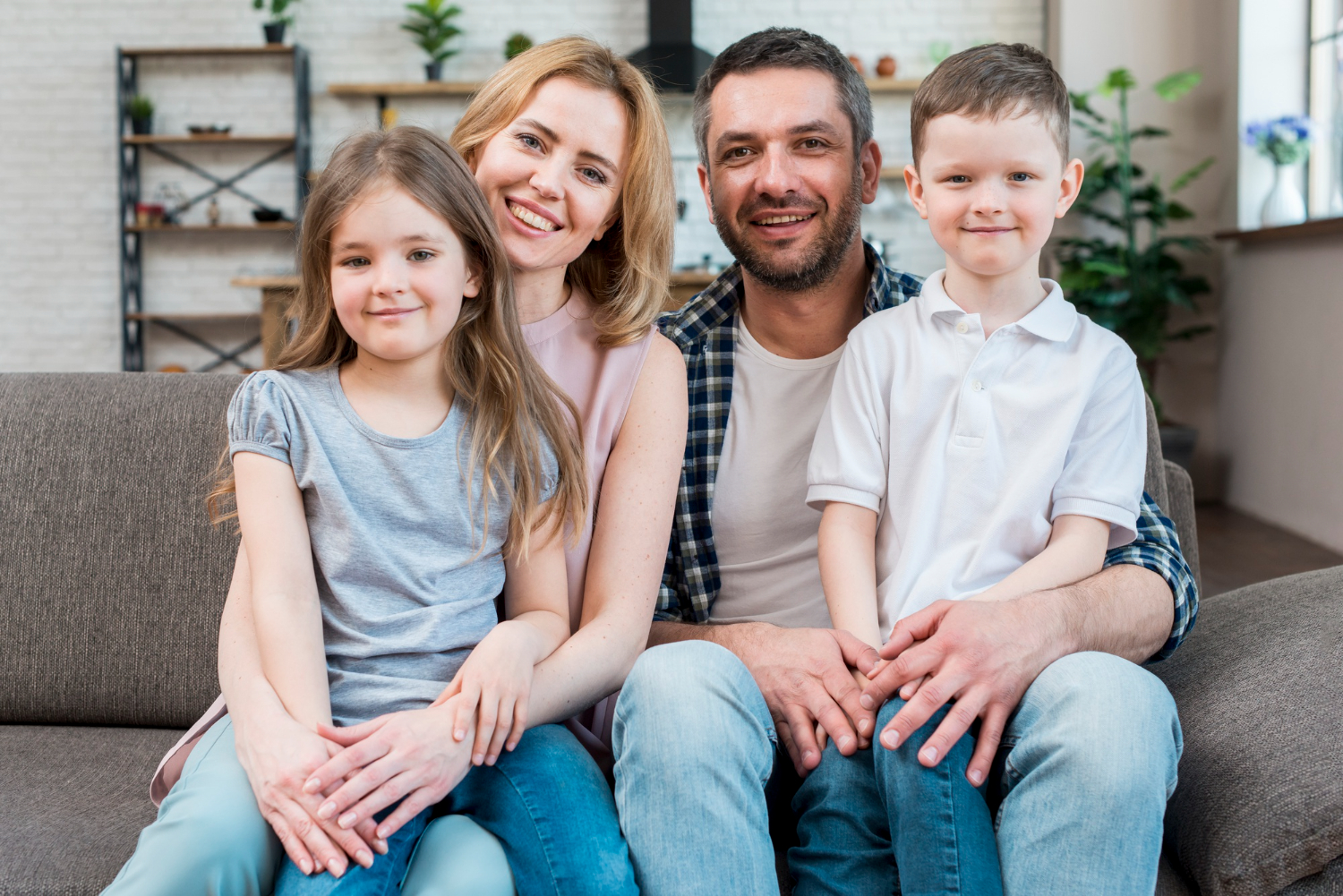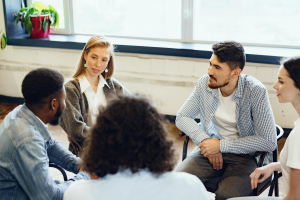Families of Clients




Embracing Family Recovery
Addiction is a family disease that impacts the entire family. At MARR, we provide services and support for family members. Active participation plays a crucial role in the recovery process and can profoundly benefit the entire family unit.
Family services at MARR include:
- Weekly Family Support Groups – MARR offers weekly support groups (in person and virtual) for families, including spouses/significant others and parents.
- Family Week – Our three-day intensive workshop, commonly referred to as Family Week, is designed to provide family members with education, support and counseling. Loved ones are strongly encouraged to attend Family Week, which is offered every 7–8 weeks. After a client completes our initial treatment phase (and gains approval from the treatment team), their family members will receive an invitation to participate in Family Week. To prepare for this workshop, we recommend attending regular 12-Step meetings beforehand, such as Al-Anon, Nar-Anon or CoDependents Anonymous (CoDA).
- Individual, Couple and Family Counseling – MARR’s family services also consist of counseling for families while the client is in addiction treatment, with the option of continuing for aftercare.
Information for Families
Families will be provided with information concerning spending money and/or prescriptions when the client is admitted. Clients receive a weekly food allowance as part of the program.
MARR has specific guidelines that must be followed with respect to what clients may receive from family and friends during the course of addiction treatment. It is not our wish to deprive our clients. Part of the therapeutic process is learning to budget and live within the established guidelines. The client’s best interests remain our top priority. Please follow the procedures given to families upon admission.
Clients receive phone privileges after their contract of personal goals has been presented and accepted by their primary counselor and community. Mail privileges vary at the different sites. Please be patient — your loved one will call and write when they can.





More About Family Week
- To support the recovering clients currently in treatment through active participation of family members.
- To assist family members in discovering and working through issues by providing a safe environment for honest exploration of feelings.
- To guide family members in the development of healthy relationships.
- To expose family members to support and therapy groups, spirituality and 12-Step recovery.
Family Support Groups
Family support groups provide ongoing support for individuals who have a child, spouse/significant other, parent, sibling or friend in one of the following situations:
- Is currently in treatment at MARR,
- Has been in treatment at MARR or another facility and is now in recovery,
- Is in active addiction, or
- Is in another substance abuse-related situation (i.e., jail, etc.)
The groups educate members about codependency and enabling, and attempt to help members detach from their addicted loved one in healthy, loving ways. We have several long-term members who have experienced the positive impact of support for their own recovery process.
MARR is pleased to offer a variety of group options – both in-person and virtually – for family members of alcoholics and/or addicts interested in ongoing support. We ask that group members commit to a minimum of four sessions. Contact our Family Program for more information.


Family Support Groups for the Outside Community
- Tuesdays, 5:30 PM-6:30 PM
- Admin Building: 2815 Clearview Pl., Atlanta, GA 30340
- Cost: $20/person
- Click here for more information.
- Wednesdays, 5:30 PM
- Admin Building: 2815 Clearview Pl., Atlanta, GA 30340
- Cost: Free
- Click here for more information.
- 1-day family seminar for the community
- Admin Building: 2815 Clearview Pl., Atlanta, GA 30340
- Cost: $50/person (includes breakfast and lunch)
- Click here to register.
About 12-Step Groups
Families impacted by addiction find serenity and peace through regular participation in 12-Step fellowships like Al-Anon, Nar-Anon and CoDependents Anonymous (CoDA). Here are a few highlights of 12-Step family recovery:
- We learn that alcoholism/drug addiction is a three-fold disease—mental, physical and spiritual—and our loved ones were/are victims of this illness. Learning about and understanding the disease is the beginning of forgiveness.
- We learn the three Cs: (1) We didn’t cause it, (2) we can’t control it, and (3) we can’t cure it.
- We learn to put the focus on, and be good to, ourselves.
- We learn to detach with love. In other words, we practice ‘tough love’ with others and even ourselves when appropriate.
- We use slogans such as “Let Go and Let God,” “Easy Does it,” “One Day at a Time,” “Keep It Simple,” “Live and Let Live,” and “Don’t Push the River, Let It Flow by Itself.” Family recovery empowers loved ones to stay in their own lane.
- We learn to feel our feelings by accepting and expressing them, and to build our self-esteem.
- Through working the 12 Steps, we learn to accept the disease of addiction, realizing that our lives have become unmanageable and we are powerless over the disease and the alcoholic/addict. We are able to change our attitudes and turn our reactions into actions. We work the 12 Steps daily and believe in the spirituality of the program—that there is a Power greater than ourselves that can restore our lives. By sharing our experiences, relating to others, welcoming newcomers and serving our fellows, we build self-esteem.
- We learn to love ourselves and in turn, we are able to love others in a healthy way.
- We practice regular telephone therapy with others in the program—this is helpful at all times, not just when problems arise.
- By applying the Serenity Prayer to our daily lives, we begin to change the unhealthy attitudes and behaviors we have acquired.
Find The Perfect Treatment For You

What Are You Struggling With?

What Kind of Care Do You Need?

What Insurance Do You Have?
Stories of Recovery Podcast
